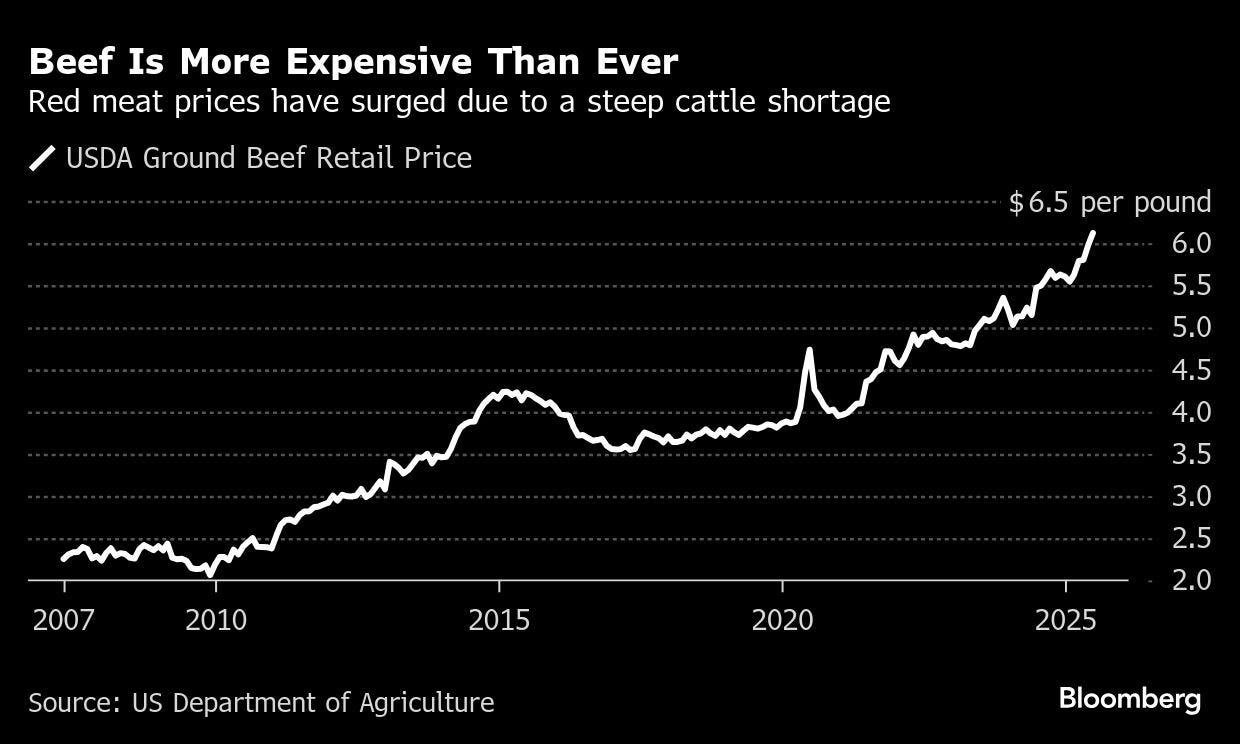By Gerson Freitas Jr.
The latest U.S. cattle tally offered little relief for consumers paying record beef prices, even as the cycle of herd liquidation seems to be coming to an end.
There were about 94.2 million cattle and calves in the U.S. as of July 1, the lowest mid-year count on record in data going back to 1973, the Department of Agriculture said in a report. The number of animals placed in feedlots for weight gain before being sent to slaughter plunged to the lowest since 2017, the USDA said in a separate note.
A severe shortage in the world’s largest beef-producing country has sent cattle costs soaring, wiping out billions in profits for companies such as JBS NV and Tyson Foods Inc., while driving record beef prices at grocery stores.

For years, ranchers have been slashing their herds due to a combination of high interest rates, costly feed and persistent drought. But record cattle prices and improved pasture conditions this year are raising speculation that ranchers are moving to rebuild their herds — a move that is yet to be confirmed.
The latest USDA numbers offer “very little indication of much herd rebuilding or anything very aggressive,” said Derrell Peel, a professor of agricultural economics at Oklahoma State University. The number of heifers in feedlots remained mostly stable relative to that for steers, suggesting ranchers are not meaningfully retaining females for breeding.
“We are probably stabilizing cattle numbers, but we’re not growing yet,” he said.
A large decline in beef cows raised specifically for breeding purposes also indicates that a rebuild has yet to kick in — prolonging a money-losing cycle for meat producers and potentially pushing consumers toward cheaper proteins like pork and chicken, according to Benjamin Theurer, an analyst at Barclays Plc.
“A full rebuild and margin recovery is a ways away,” he wrote in a note to clients.
Even if ranchers start rebuilding now, beef supplies aren’t expected to meaningfully recover before 2028 or 2029 — meaning cattle and beef prices are poised to remain elevated for years.
© 2025 Bloomberg L.P.